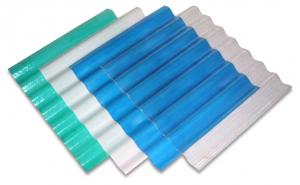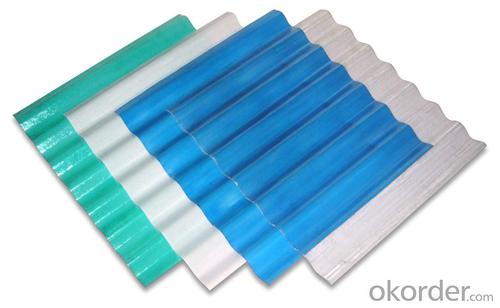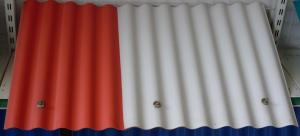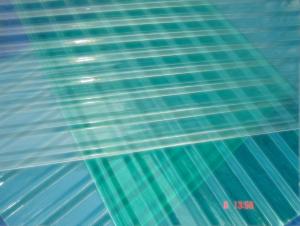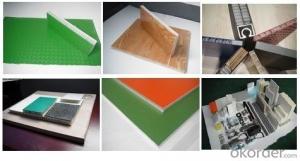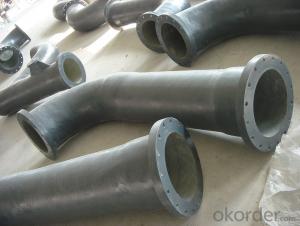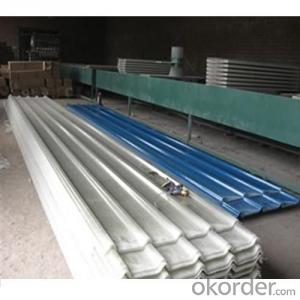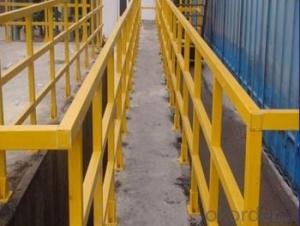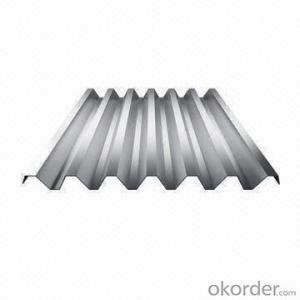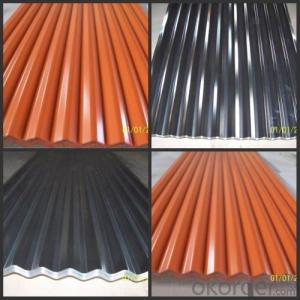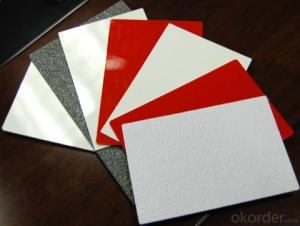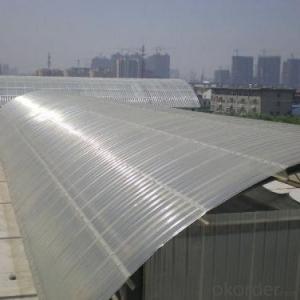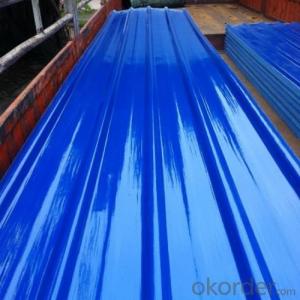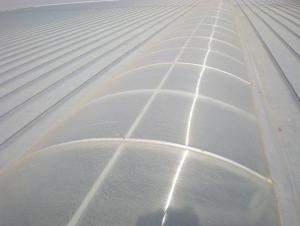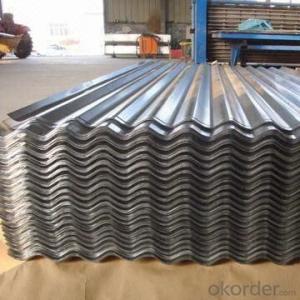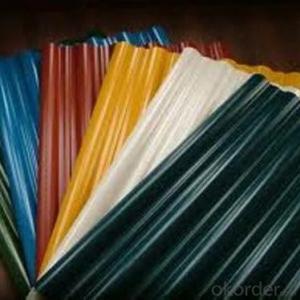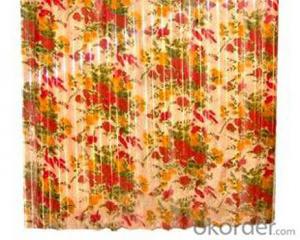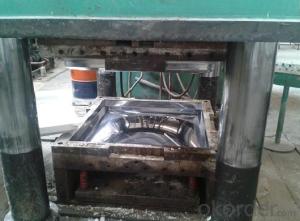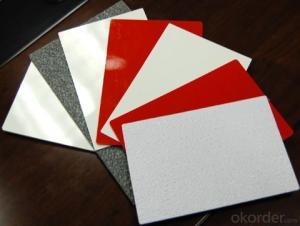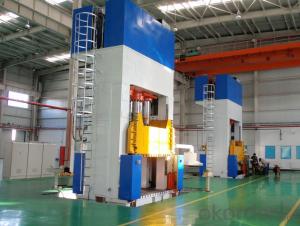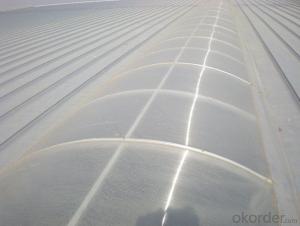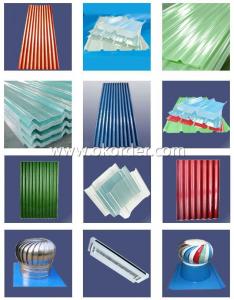FRP GRP Roofing Panel
- Loading Port:
- China Main Port
- Payment Terms:
- TT or L/C
- Min Order Qty:
- 100m2 watt
- Supply Capability:
- 1000m2/MONTH watt/month
OKorder Service Pledge
Quality Product, Order Online Tracking, Timely Delivery
OKorder Financial Service
Credit Rating, Credit Services, Credit Purchasing
You Might Also Like
Characteristics of GRP Roofing Panel:
1) Transparant;
2) Lasting Performance
3)High Strength & light weight
4) Thermal Insulation
5) Corrosion Resistant
Properties of GRP Roofing Panel:
- High light transmittance, with a higher index of transmitting than ordinary FRP sheet, the color free sheet can reach the transmitting index above 85%;
- Soft sunlight shooting in house without the existence of light drizzling since the fiberglass is well distributed in the sheet;
- Low ultra-violet transmission, which can reduce the harm for the plants and is very useful for the green house skylight;
- Good weather resistance, with the special coat covered on the surface of the skylight sheet, and a working life of over 15years is available;
- Strong strength and strong impact resistance, being resistant for hail without the effect on the normal use the sheet;
- Low thermal conductivity, with the heat loss 34-48% lower than that of single glass of the single plastics film, showing much better thermal insulation effect than glass and plastics, and at present double skylight sheet has been developed and applied for the severe cold area to meet the requirement for the thermal insulation, its index of light transmission can also reach above 75%;
Applications of GRP Roofing Panel:
- Match with the asbestos-cement corrugated sheet and the galvanized steel corrugated sheet, which is generally used;
- Mach with the roller-pressing steel sheet;
- Mach with concealed roller-pressing steel sheet as skylight sheet;
- Mach with thermal insulation roller-pressing steel sheet as skylight sheet.
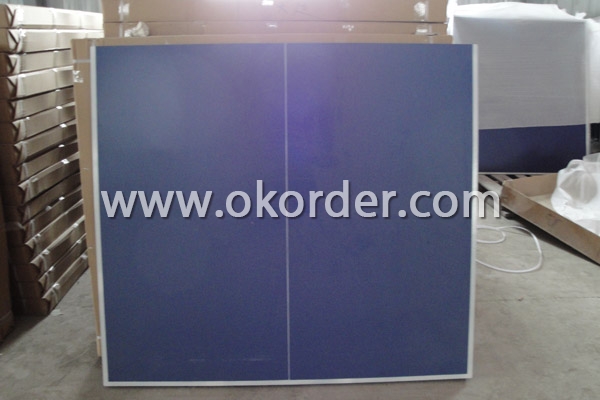
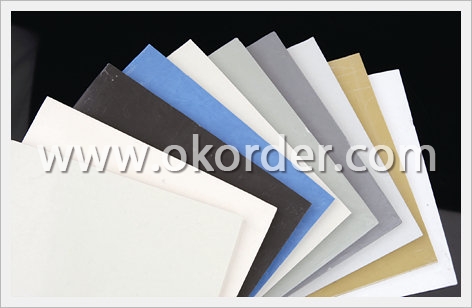
- Q: Do FRP roofing panels require any specific safety measures during installation?
- During the installation of FRP roofing panels, specific safety measures are required. Take note of the following important safety precautions: 1. Personal Protective Equipment (PPE): It is necessary for installers to wear appropriate safety gear such as safety glasses, gloves, and non-slip footwear. This will safeguard them against potential hazards like sharp edges or falling debris. 2. Ensuring a Safe Work Environment: Prior to commencing the installation, make sure the work area is free from any obstructions or tripping hazards. Maintaining good housekeeping practices is crucial to minimize the risk of accidents. 3. Fall Protection: If the installation involves working at heights, implement fall protection measures such as harnesses, guardrails, or safety nets. Installers should receive proper training on the use of fall protection equipment. 4. Proper Lifting Techniques: FRP roofing panels can be heavy, so it is important to use proper lifting techniques to prevent strains or injuries. Depending on the weight and size of the panels, team lifting or mechanical lifting devices may be necessary. 5. Power and Tool Safety: If power tools are used during installation, ensure that they are operated according to the manufacturer's instructions and only by trained personnel. Adhere to electrical safety precautions such as using grounded tools and avoiding wet conditions. 6. Weather Conditions: Weather conditions can affect the safety of the installation, particularly when working at heights. Installers should be mindful of potential hazards like strong winds, rain, or lightning and take appropriate precautions, including rescheduling the work if necessary. 7. Training and Supervision: Proper training in the installation techniques and safety measures specific to FRP roofing panels is essential for all installers. Regular supervision and communication regarding safety practices can prevent accidents and maintain a safe working environment. By adhering to these safety measures, the risk of accidents or injuries during the installation of FRP roofing panels can be significantly reduced, ensuring the safety of the installers and the overall success of the project.
- Q: Do FRP roofing panels require a specific type of snow guard?
- Yes, FRP (Fiberglass Reinforced Plastic) roofing panels do require a specific type of snow guard. The choice of snow guard for FRP roofing panels depends on various factors such as the slope of the roof, the location of the building, the average snowfall in the area, and the specific design of the roofing system. Snow guards are essential components for preventing large amounts of snow and ice from sliding off the roof in a sudden and potentially dangerous manner. They help to distribute the weight of the snow more evenly, preventing roof damage and potential injury to people and property below. When selecting a snow guard for FRP roofing panels, it is important to choose one that is compatible with the specific type of roofing panel being used. FRP panels are lightweight and flexible, so the snow guards should be designed to accommodate their unique characteristics. Additionally, factors such as the spacing and placement of the snow guards should be determined based on the specific requirements of the FRP roofing system. Consulting with a professional roofing contractor or manufacturer is recommended to ensure the appropriate snow guards are selected and properly installed for maximum effectiveness and safety.
- Q: Can FRP roofing panels be installed on greenhouses or botanical gardens?
- FRP roofing panels are capable of being installed in both greenhouses and botanical gardens. These panels possess numerous advantageous characteristics, including their lightweight composition, durability, and exceptional thermal insulation capabilities. Consequently, they prove to be an optimal choice for such structures. Furthermore, FRP panels exhibit resistance to UV radiation, chemicals, and moisture, all of which are commonly encountered within greenhouse and botanical garden settings. This resistance enables the panels to effectively shield plants from the elements while simultaneously facilitating the transmission of ample natural light. By incorporating FRP roofing panels, one can achieve a cost-effective, long-lasting, and visually appealing solution for maintaining a controlled environment conducive to plant growth in greenhouses or botanical gardens.
- Q: Can FRP roofing panels be used for canopies over entrances?
- Canopies over entrances can indeed utilize FRP (Fiberglass Reinforced Plastic) roofing panels. These panels possess attributes such as lightweightness, durability, and exceptional resistance to weather conditions, rendering them ideal for outdoor purposes like canopies. Their implementation can ensure protection against the elements while crafting an alluring and inviting entrance. Moreover, the availability of FRP panels in diverse hues, textures, and designs enables customization to suit the aesthetic demands of the building or entrance.
- Q: Are FRP roofing panels suitable for residential communities?
- Yes, FRP (Fiberglass Reinforced Plastic) roofing panels are suitable for residential communities. They are lightweight, durable, and offer excellent resistance to various weather conditions, including UV rays, wind, and rain. FRP panels are also fire-resistant and have a long lifespan, making them a cost-effective choice for residential roofs. Additionally, they are available in various colors and designs, allowing homeowners to find a style that complements their community's aesthetic.
- Q: Can FRP roofing panels be used for military or defense installations?
- FRP roofing panels are suitable for military or defense installations, offering numerous advantages. Firstly, their durability and strength make them ideal for harsh environments and potential attacks. They can withstand impact, corrosion, and extreme weather conditions, providing structural integrity despite heavy loads. Additionally, FRP panels excel in chemical and fire resistance, which is crucial in the presence of hazardous or explosive materials. Their flame-retardant properties prevent the spread of fire, guaranteeing the safety of personnel and equipment. Moreover, the lightweight nature of FRP roofing panels allows for easy transportation and installation in remote or temporary military sites. This reduces the burden on supporting structures, potentially leading to cost savings during construction. Furthermore, FRP panels can be manufactured in various colors, including camouflage patterns, ensuring they blend seamlessly with the surroundings. This is essential for military installations that require concealment and enhanced security. In conclusion, FRP roofing panels provide reliable protection for military or defense installations. Their durability, strength, resistance to chemicals and fire, lightweight nature, and camouflage possibilities contribute to the longevity and safety of military structures and personnel.
- Q: Are FRP roofing panels resistant to tree sap or bird droppings?
- Yes, FRP (Fiberglass Reinforced Plastic) roofing panels are generally resistant to tree sap and bird droppings. The smooth surface of FRP panels makes it difficult for these substances to adhere to the roof, allowing for easier cleaning and maintenance.
- Q: Can FRP roofing panels be installed on metal structures?
- Yes, FRP roofing panels can be installed on metal structures.
- Q: Are FRP roofing panels suitable for restaurants?
- Restaurants can indeed benefit from using FRP (Fiberglass Reinforced Plastic) roofing panels. These panels possess numerous features that make them an ideal option for restaurant roofs. To begin with, FRP panels exhibit exceptional durability and resistance against harsh weather conditions, such as extreme temperatures, UV rays, and moisture. This becomes particularly significant for restaurants that often possess outdoor seating areas or rooftop sections requiring protection from the elements. Moreover, FRP panels are lightweight, simplifying installation and reducing the burden placed on the building structure. This proves advantageous for restaurants by minimizing the necessity for additional structural support and lowering installation expenses. In addition, FRP panels are renowned for their outstanding thermal insulation properties. As a result, they contribute to maintaining a comfortable indoor temperature, reducing the need for excessive air conditioning or heating. Consequently, this leads to energy savings and decreased utility bills for the restaurant. Furthermore, FRP panels possess fire-resistant qualities, which are crucial for commercial establishments like restaurants that face a higher risk of fire hazards due to cooking activities and the presence of flammable materials. Lastly, FRP panels come in a wide array of colors and finishes, allowing restaurants to select a design that aligns with their aesthetic preferences. All in all, FRP roofing panels prove to be a suitable option for restaurants due to their durability, weather resistance, lightweight nature, thermal insulation properties, fire resistance, and versatility in design options.
- Q: Are FRP roofing panels compatible with different roof coatings or paints?
- Yes, FRP roofing panels are compatible with different roof coatings or paints. The smooth and durable surface of FRP panels allows for proper adhesion and compatibility with a variety of roof coatings or paints, providing an effective and long-lasting solution for roofing needs.
We were established in 1999, registered capital 3.8 million Yuan, has a staff of over 200 people, is a share-issuing enterprise, and already got the ISO9001:2000 quality control system's authentication. The corporate's business mainly includes the glass fiber reinforced plastic (FRP)products, the metal structure products and the floor radiation heating project three major parts.
1. Manufacturer Overview
| Location | Shanghai, China |
| Year Established | 1999 |
| Annual Output Value | Above US$ 300,000 |
| Main Markets | Mid East; Eastern Europe; North America |
| Company Certifications | ISO 9002:2000 |
2. Manufacturer Certificates
| a) Certification Name | |
| Range | |
| Reference | |
| Validity Period |
3. Manufacturer Capability
| a) Trade Capacity | |
| Nearest Port | Shanghai |
| Export Percentage | 41% - 50% |
| No.of Employees in Trade Department | 100 People |
| Language Spoken: | Chinese |
| b) Factory Information | |
| Factory Size: | Above 100,000 square meters |
| No. of Production Lines | Above 5 |
| Contract Manufacturing | OEM Service Offered; Design Service Offered |
| Product Price Range | Average |
Send your message to us
FRP GRP Roofing Panel
- Loading Port:
- China Main Port
- Payment Terms:
- TT or L/C
- Min Order Qty:
- 100m2 watt
- Supply Capability:
- 1000m2/MONTH watt/month
OKorder Service Pledge
Quality Product, Order Online Tracking, Timely Delivery
OKorder Financial Service
Credit Rating, Credit Services, Credit Purchasing
Similar products
Hot products
Hot Searches
Related keywords
